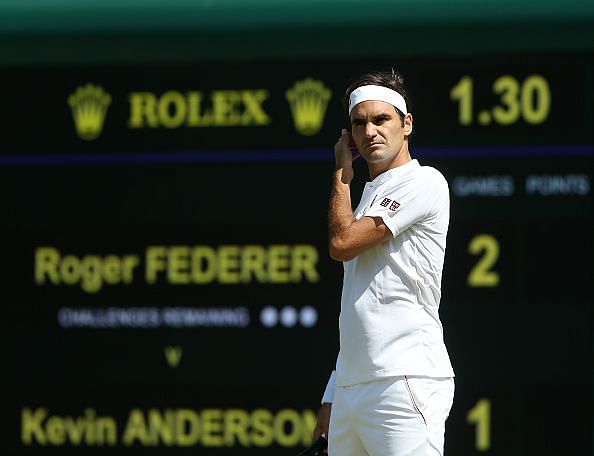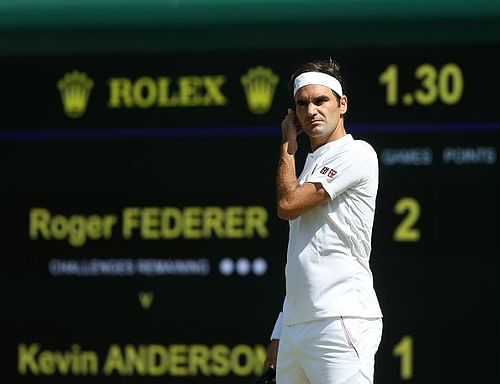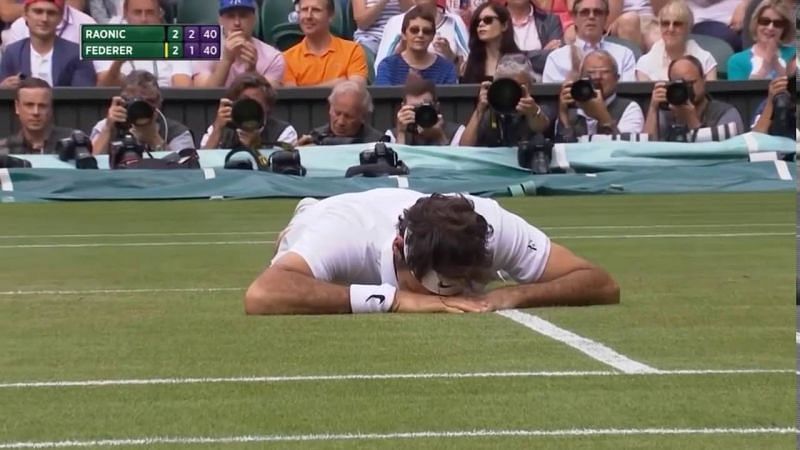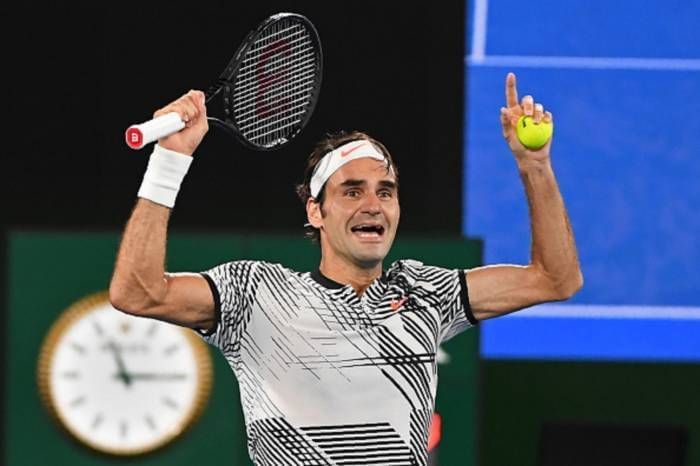
Roger Love: King Federer will return, surely
It is true that it was probably Roger Federer's Wimbledon to lose.
Fresh from the heels of Stuttgart victory, Halle finals and on a blistering 32 set winning streak at the Wimbledon, someone needed to play the match of his life to knock Federer off. Right on cue was Kevin Anderson who has further enhanced his burgeoning reputation as a dogged fighter by seeing off John Isner in six hours and 36 minutes.

But, forget for a moment that you either love or hate Anderson, no sooner had Federer left the court saying that of course his goal was to come back next year that detractors had started questioning that will an ageing Federer be really up to the long slog tennis is and be a title contender same time next year. Simon Cambers wrote for ‘The Guardian’ that Federer may well be the greatest of all time but even he will find it tough to win at that age. This, with all due respect to Simon Cambers, does go with the historical perspective but Federer is already beyond the age most players wind down their careers. Andre Agassi won his final major at 32, Laver and Sampras at 31.
We have been here so many times before that we already know what’s next!
Back in 2015 and in the middle of Federer’s leanest years, Federer reached yet another Wimbledon final losing only one set in the way. But the audience was so resigned to Federer’s inability to win a grand slam final against Novak Djokovic that the final drew in a peak audience of 9.1mn viewers down both on 2014(10mn) and 2013(17.7mn).
In fact, between 2010 and 2017, apart from managing only a single grand slam, he was 0 to 4 against Novak Djokovic and 0 to 3 against Nadal at majors. He did make some deep runs at grand slams showing mixed flashes of brilliance much like his early brash temperamental days but this time though, his career was flickering.
Djokovic, Nadal and Murray realized that where they cannot match in grace, they can get through manipulation with modern racquets, powerful drive volleys with kinks in the back, revolutions on the ball, longer rallies, five setters and marathon matches. An intolerable injury threat and an unsustainable proposition of endurance based physical tennis was a riddle Federer did not have an answer to.
2016 proved to be the ultimate annus horribilis with 28 matches, one final (Brisbane International) and 2-6 record against the top 10. Raonic, Djokovic, Tsonga, Thiem, Zverev with their double fisted brutality all bullied and battered him. Federer-the cool lad with unquestioned dominance was flustered.
It was, in fact, the longest grand slam drought in his entire career and it was becoming increasingly clear that Federer no more had the resources to compete against the top 10 and yet another legend would have to bow out on a low. His fall in Wimbledon’s semis against Raonic manifested to be the final nail in the coffin. Rehabbing his knee meant that he had to sit out the rest of the year, including the US Open. This was only the second major he skipped in 17 years, first one being the French Open the same year.

Retirement calls only grew louder and many started writing him off altogether. In a May-19 (2016) article "Why Roger Federer will never win another grand slam?", Charlie Eccleshare of ‘The Guardian’ outlined several reasons why Federer’s case of the long-elusive 18th grand slam would be chucked to oblivion. In November 2016, CNN's Sport Facebook page marked the then seismic moment of Federer exiting the top 10 after 14 years with a poll asking ‘Will Federer ever return to the top 10?’. How prophetic?
Federer's Renaissance
At 17 grand slams, Federer definitely had no reason to come back or undergo the trials and tribulations that rehabbing and returning from a career-threatening knee injury demanded and at 35, he had already comfortably outlasted notable legends such as Sampras, who retired at 32, Bjorn Borg (26) and Becker (31). But this was Federer-no ordinary mortal.
After he won the 2009 French Open final, subsequent to falling to Nadal in previous three finals and one semifinal, Federer had said; "That's what champions do: they want to come back and prove themselves over and over again”. While some were of the opinion that even if he returns; he’ll never be the same player again and the rest were plotting his farewell party, Federer, staying true to himself was putting in place his comeback strategy and industriously grinding himself with his trainers in Basel and Dubai.
Accelerating through time, he improved from one on one drills to points, sets and then full fledge matches. His only preparation entering the Australian Open was the Hopman Cup where too he lost to German prodigy Alexander Zverev. At the Australian Open, he battled through to the finals notably overcoming three top ten players Berdych, Stan Wawrinka and Kei Nishikori in five sets.
It seemed ironic though that Nadal, the man who had decimated Federer in their last six grand slam meetings (four finals and two semifinals) and responsible for some of the darkest moments of his career, was waiting at the opposite end of a possible Federer renaissance. In a match billed as the most important of Federer’s entire career, the beauty finally evoked the beast and defeated Nadal in a classic five-setter after being 1-3 down in the last set.

He went onto win Wimbledon without dropping a set and at 36, 2017 was his most successful season after 2007. This was a Federer eventually standing up to his bullies, taking them on in marathon matches and tamping them down with his backhand. This was a Federer evincing and establishing that you can never say he’s over or today’s tennis stars can bake slickness out of him.
Not only has Federer revolutionized himself but has also conjured new frontiers of the sport he plays. So don’t laugh when he says he aims to come back next year and the year after; listen instead. After Novak Djokovic got the better of Roger Federer in the 2008 Australian Open semifinals, Djokovic’s mother had famously quipped that “The King is dead”. In the test of times, however; she, much like other Federer detractors, proved to be a decade too early. The King is alive, and if recent history is a judge, will return, surely...